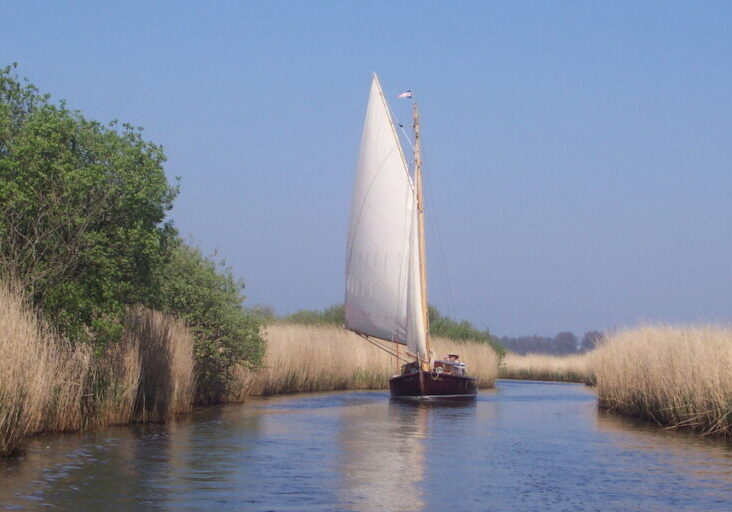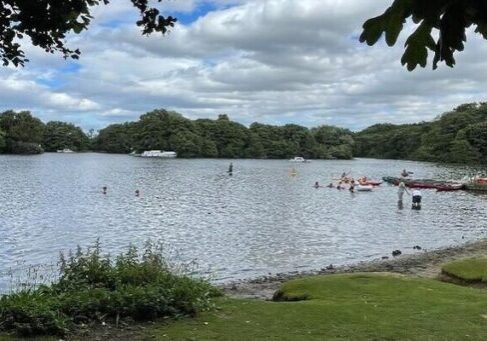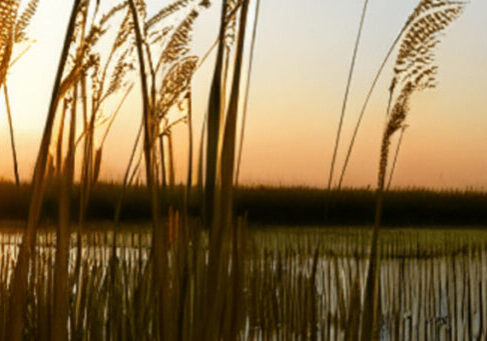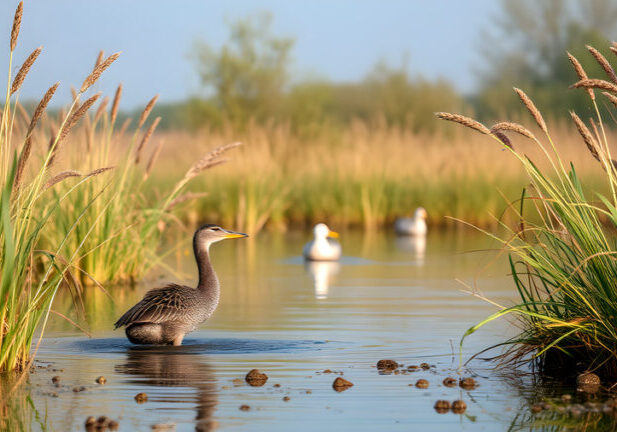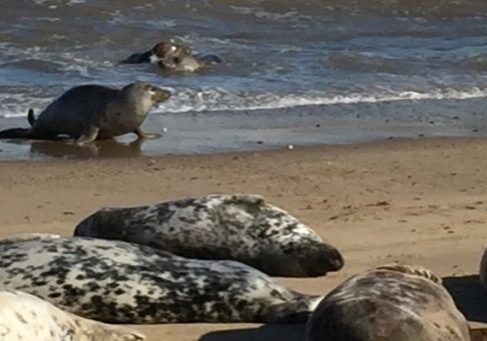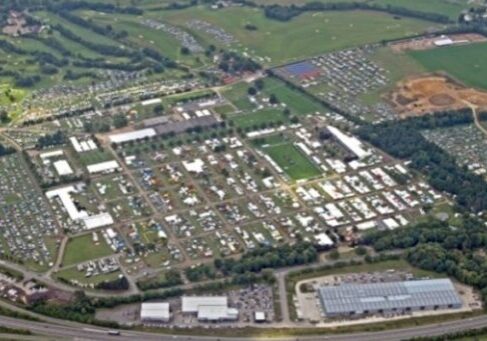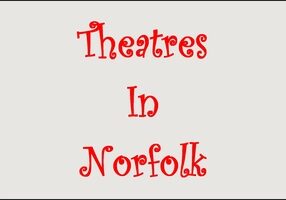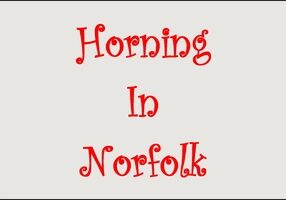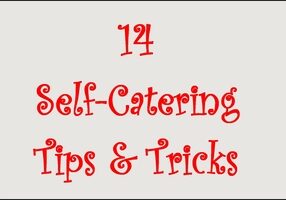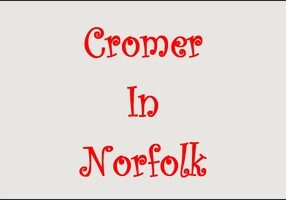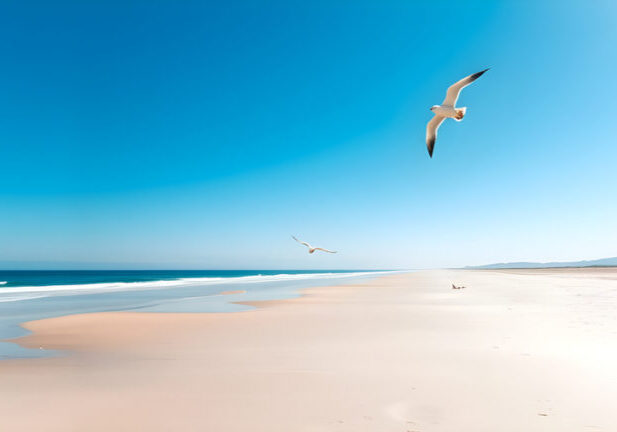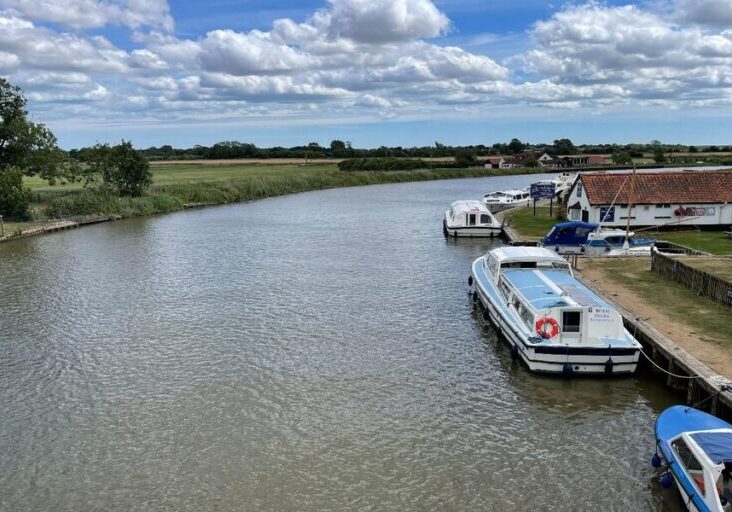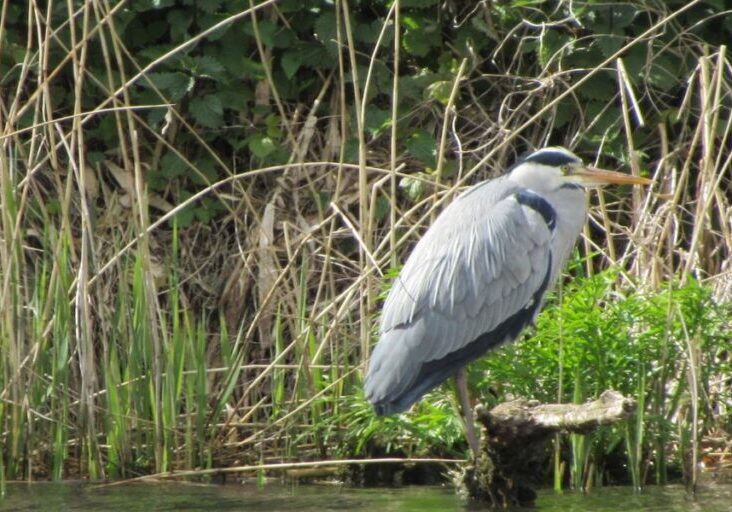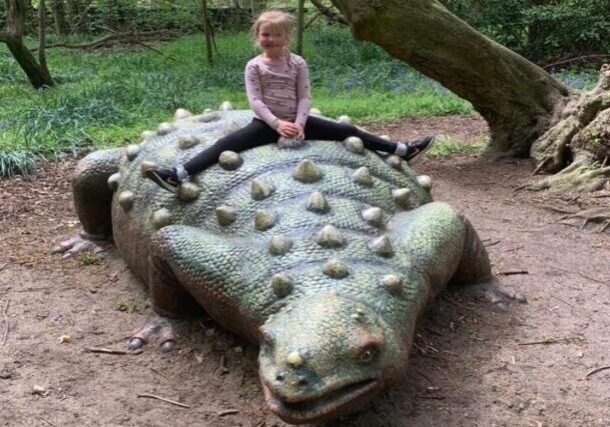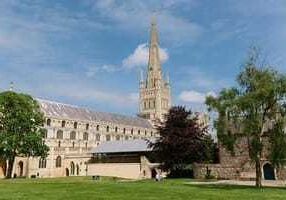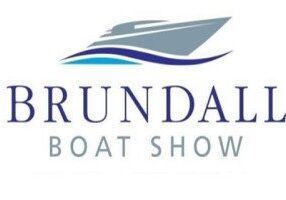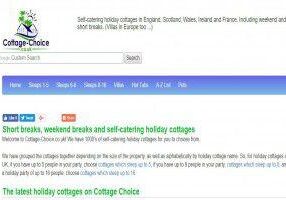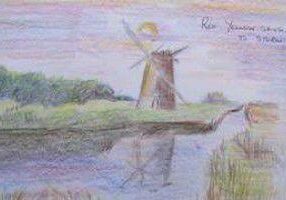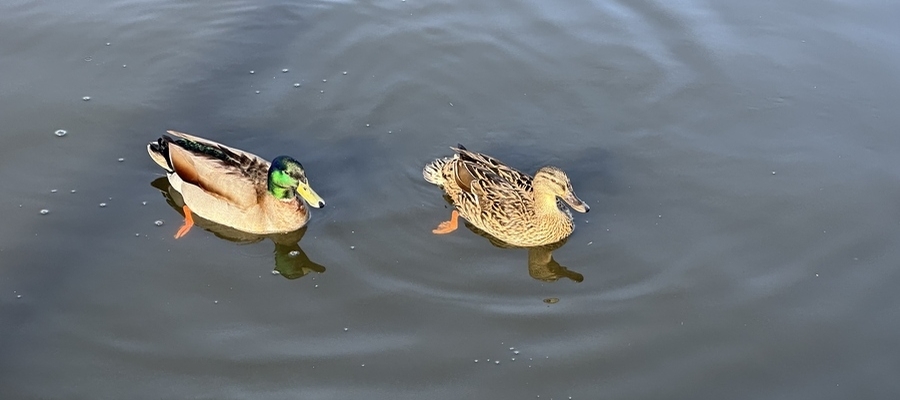
Feeding Ducks
Feeding ducks and other wild birds is a fun activity for people of all ages and can be a great way to connect with nature and appreciate the beauty of these fascinating birds.
However, it’s important to remember that not all foods suit ducks. Feeding wild ducks the wrong types of food can harm their health and well-being.
What Not To Feed Ducks
Feeding Ducks Bread
Contrary to popular belief, bread is not a suitable food for ducks. While wild ducks may enjoy eating bread, it’s bad for their health. Bread is low in nutritional value and can cause health problems if they overeat it.
Feeding ducks bread can lead to a condition called Angel Wing, a deformity of the wings that makes it impossible for the bird to fly. It can also cause obesity, malnutrition, and other health problems.
Excess bread rotting in water contributes to algae blooms, which deplete oxygen levels and harm aquatic ecosystems.
Don't Feed Ducks Anything That's Not Food
It’s important to feed wild ducks foods that are safe for them to eat. Feeding them anything that’s not food can be harmful to their health. Some examples of things you should never feed ducks include:
- Candy
- Chips
- Fast food
- Moldy or spoiled food
- Citrus fruits (oranges, lemons and limes)
- Anything with caffeine or alcohol
Feeding wild ducks anything that’s not food can make them sick and even cause death.
It's important to note that feeding wild ducks should never be used as a means of disposing of food waste. Feeding food scraps or other human food can cause a range of health problems and contribute to pollution in the waterways.
Don't Chase Or Harass Ducks
While feeding ducks can be a fun activity it’s important to remember that ducks are wild animals and should be treated with respect. Never chase or harass ducks as this can cause them stress and anxiety. If a duck seems uncomfortable or starts to move away from you, it’s best to stop feeding them and let them be.
What Should I Feed Ducks
What Do Ducks Naturally Eat
Ducks are omnivores. In their natural habitat, they eat both plants and animals.
- Aquatic plants: Algae, pondweed, and duckweed.
- Insects and larvae: A vital source of protein, especially during the breeding season.
- Small fish and amphibians: Occasionally, ducks will eat tiny fish or tadpoles.
What To Feed The Ducks Instead Of Bread
When feeding ducks, it’s best to stick to foods similar to what they would eat in the wild. Remember to cut larger items into bite-sized pieces and offer food in moderation. Ducks still need to forage for their natural diet to remain healthy.
Some great options include:
- Duck feed: You can buy specialised duck feed from pet stores or online. This is a good option because it’s specifically designed to meet the nutritional needs of ducks. Wild bird seed can also be fed to wild ducks.
- Grains and seeds: Ducks love grains such as corn, wheat, and barley. You can buy these at your local grocery store or feed store.
- Vegetables: Ducks enjoy lettuce, spinach, and frozen peas (defrosted).
- Fruits: Ducks love fruits such as grapes, watermelon, and berries.
Overfeeding Ducks
When feeding wild ducks, it’s important to remember that moderation is key. While feeding ducks can be fun, it’s not a good idea to overfeed them. Overfeeding can lead to health problems such as obesity and malnutrition.
A good rule of thumb is to feed ducks a small amount of food. A handful of duck feed or a few small pieces of vegetables or fruit is plenty. You should also limit how often you feed the ducks. Once or twice a week is usually sufficient.
Places To Feed Ducks
When feeding wild ducks, it’s important to choose the right location. Only feed ducks where it’s allowed and where there’s plenty of open space for them to move around.
Avoid feeding ducks in crowded areas or near busy roads. This can be dangerous for both the ducks and the people feeding them. It’s also important to make sure you’re not feeding ducks in an area where there’s a risk of pollution or contamination.
Avoid feeding ducks near areas where boats are moored or where people are fishing, as this can create a safety hazard. Do not feed ducks while standing on a bridge or leaning over the water, as this can be dangerous.
Clean Up After Yourself
After feeding ducks correctly, it’s important to clean up after yourself. You should never leave food scraps or litter behind, especially plastic waste, as this can attract other animals and create a mess. Instead, bring a rubbish bag and dispose of all food scraps or litter properly.
Always wash your hands after feeding, as ducks can carry bacteria and germs.
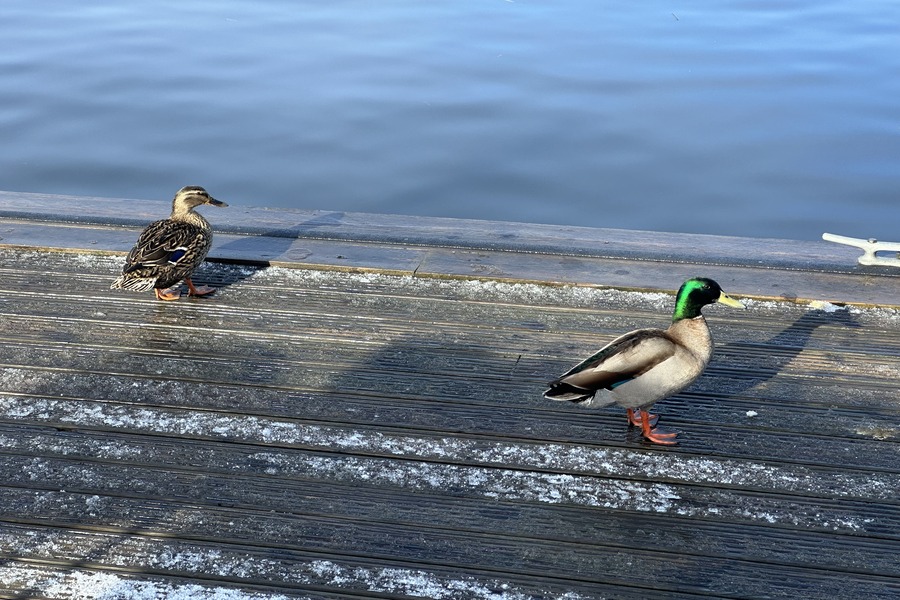
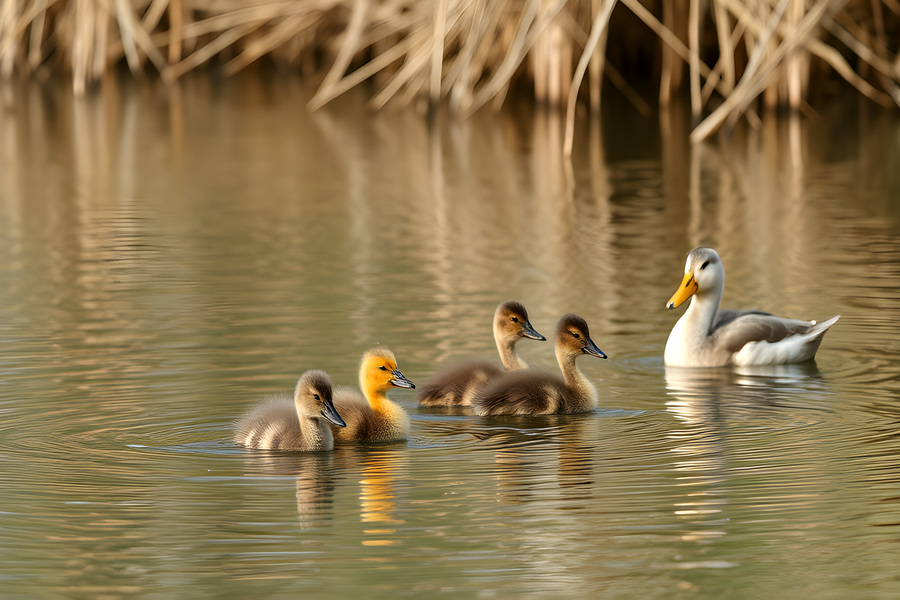
Seasonal Considerations
Spring And Summer
In Spring and Summer, ducks are nesting and raising ducklings. Protein-rich foods, like mealworms, can be especially beneficial during this time. Be mindful of keeping your distance from ducklings and their protective parents.
Autumn
In Autumn ducks are preparing for migration or winter. High-energy foods like grains and seeds can help them build reserves.
Winter
In the winter, duck's diets change and they need different types of food to survive. Feeding ducks in the winter can be harmful to their health as it can disrupt their natural feeding patterns and cause them to rely on humans for food.
If you want to help ducks in the winter you can create a safe habitat for them by providing a shallow, ice-free pond or leaving piles of leaves or grass clippings to forage in.
Observe Behaviour Feeding Ducks
Observing duck behaviour can be a fascinating experience and it can help you understand their needs and preferences. Ducks often communicate through body language, such as bobbing their heads or flapping their wings.
Pay attention to the behaviour of the ducks you are feeding. If they appear stressed or agitated, stop feeding them and move away. If ducks become aggressive or start fighting over food, discontinue feeding and allow them to disperse.
Feeding Wild Ducks
Parks are popular spots for feeding wild ducks, but they come with unique challenges:
- Overcrowding: Park Ponds often house more ducks than the environment can sustain.
- Pollution: Leftover food contributes to algae blooms and poor water quality.
- Human-Duck Interaction: Frequent feeding can make ducks overly reliant on humans and less wary of potential dangers.
If feeding wild ducks in a Park, be extra cautious about limiting food quantities and choosing appropriate items.
How Feeding Ducks Impacts Ecosystems
Ducks are part of a larger ecological web. Their feeding habits influence not only their health but also that of the surrounding environment. Overfeeding can disrupt this balance in several ways:
- Excess Waste: Duck droppings can accumulate, leading to nutrient overload in water systems.
- Competition: Overfed ducks may outcompete other wildlife for resources.
- Behavioral Changes: Regular feeding alters natural behaviours, making ducks more aggressive or dependent.
By feeding ducks responsibly, we can minimise these impacts and help maintain the health of their ecosystems.
The Joy Of Feeding Ducks
Feeding ducks can be a wonderful way to connect with nature, but it comes with responsibility. By choosing nutritious foods, feeding sparingly, and respecting their environment, you can ensure that your duck-feeding outings are both enjoyable and beneficial.
So next time you head to the pond, skip the bread and bring a bag of duck-friendly healthy snacks instead. Not only will the ducks thank you, but so will the ecosystems they call home.
Norfolk Broads Ducks
Nestled in the tranquil waterways of Norfolk, the Norfolk Broads Ducks epitomise the serene charm of this picturesque region. These iconic waterfowl, ranging from majestic Mallards to vibrant Mandarins, grace the expansive rivers and tranquil broads with their presence. Their graceful movements and vibrant plumage add colour to the lush green landscapes and winding water channels. Visitors to the Norfolk Broads are often enchanted by these ducks gliding effortlessly across the water, their quacks echoing through the reeds.
Whether you're a nature enthusiast, a birdwatcher, or simply seeking a peaceful retreat, encountering the Norfolk Broads Wildlife is an unforgettable experience, offering a glimpse into the timeless beauty of this unique wetland habitat.
Frequently Asked Questions
Is It Illegal To Feed Ducks Bread In The UK?
It's not illegal to feed ducks bread in the UK but is irresponsible as bread can be dangerous to ducks.
Do Ducks Attract Rats?
Ducks don't attract rats but any food left behind when feeding ducks can attract rats.
Do Ducks Like Being Handled?
Wild ducks should not be handled. A pet duck if handled from an early age can become very tame.
Conclusion
In conclusion, feeding ducks can be fun and rewarding, but it’s important to do it responsibly. By feeding ducks healthy, natural foods in moderation, in the right location, and cleaning up after yourself you can ensure these beautiful birds stay healthy and happy.
Remember, ducks are wild animals and should be treated with respect, so never chase or harass them, and always follow any rules or regulations in the area where you’re feeding them. With a little care and attention, feeding ducks can be a wonderful way to connect with nature and appreciate the beauty of these amazing creatures.

